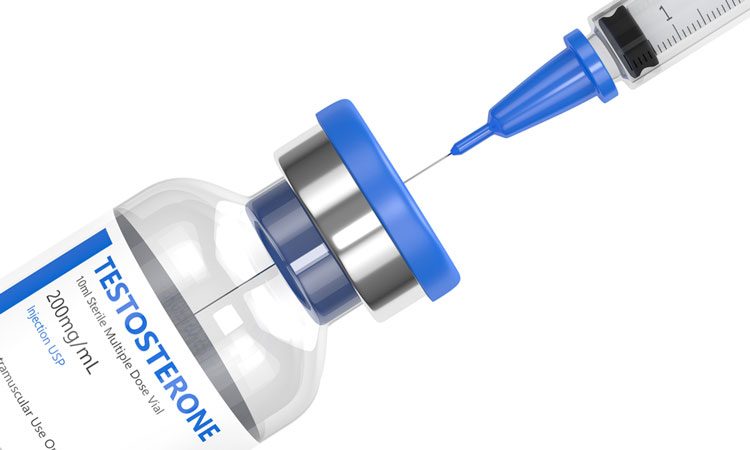Duluth Car Accident Lawyer can help you get the compensation you deserve. You can schedule a free consultation to ask questions and learn more about your options.
They can pressure insurance companies to settle quickly and negotiate a fair settlement. They can also help you fight back against any attempts to deny or diminish your claim.

When you’re involved in a car accident, the damage to your property and injuries can be costly. You may be able to recover compensation for your losses through the at-fault driver’s insurance company by filing an insurance claim or lawsuit. In addition to covering your medical expenses and lost income, you can also claim damages for pain and suffering. The amount you receive will depend on the severity of your injury and how it affects your quality of life.
The most common type of compensation for a car accident is called compensatory damages. These are payments that cover a victim’s past, present, and future economic losses caused by the accident. Past losses include medical bills, lost wages, and property damage. Your attorney will also consider your future losses, which may include a reduced earning capacity or the need for special adaptive equipment.
If you’re injured in a car accident, it’s important to seek medical treatment as soon as possible. This will help you document your injuries and provide a stronger case for your damages. It’s also important to keep all of your receipts, records, and documents relating to the accident. You should also take pictures of the accident scene and your injuries.
A successful car accident claim will involve proving that the at-fault party’s negligence was the direct cause of your damages. In a car accident case, negligence is defined as failing to act with the reasonable care that a prudent person would have exercised in similar circumstances. You must be able to show that the other party breached this duty of care, resulting in the accident and your losses.
It’s important to consult with a lawyer right after the accident. This will ensure that you get the maximum payout possible for your damages. Many insurance companies will challenge your claims and minimize the seriousness of your injuries to reduce the amount they must pay you. An experienced car accident lawyer can protect you from these tactics and fight for your rights to full and fair compensation.
The law firm of Pasternack, Tilker, Ziegler, Walsh, Stanton & Romano is dedicated to fighting for the rights of their clients and providing expert legal representation in car accident cases. Their attorneys are all recognized in The Best Lawyers in America and have significant experience representing victims of car accidents.
Medical bills
Medical bills are the most common expense incurred after a car accident, and they can quickly add up. These costs are not only caused by the immediate treatment you receive, but they can also include future care and related expenses. As a result, it is important to understand how to handle these bills and how they can be addressed through your injury claim.
First, it is essential to contact the healthcare provider directly to address questions or concerns about your medical bills. They have the most up-to-date information and are able to provide you with detailed explanations and assistance regarding any billing issues. They can also direct you to any relevant insurance providers. In most cases, health insurance will cover the medical bills incurred after a car accident. However, you are responsible for any co-pays or deductibles as per the terms of your policy. Medicare and Medicaid also follow this same protocol, but may require a certain amount of time before the original undiscounted bill is paid by them.
In addition to your healthcare insurance, you may have car insurance coverage for uninsured/underinsured motorists (UIM). This policy acts as a liability policy from your own auto insurer to help pay your damages when the at-fault driver has no insurance or has a low policy limit. It may also help pay for co-payments and deductibles on your healthcare insurance or cover treatments that are not covered by medical payments.
Our Chicago car accident attorneys can help you pursue compensation for your medical bills and other losses through a personal injury claim. This includes monetary compensation for past, present, and future medical expenses as well as lost wages, property damage, and pain and suffering.
We have helped clients recover over a million dollars in settlements for their injuries and losses after a car accident. Our lawyers can review the details of your case and recommend the best course of action to recover the maximum compensation possible. Call us to schedule a free consultation. We offer flexible scheduling, including after-hours and weekend appointments. We also provide free initial consultations.
Lost wages
If you’re injured in a car accident and can’t work, your family may suffer from financial difficulties. In addition to medical bills, you could lose a significant portion of your income. You’re entitled to compensation for lost wages and benefits, and your car accident lawyer will help you prepare a wage-loss claim.
Wage-loss compensation typically accounts for your income from work in the months immediately after a car accident, as well as any future losses you might experience. It includes any time you had to use vacation or sick days as you were recovering from your injuries. Your lawyer will also review your employment and medical history and will consult wage-loss experts to calculate exactly how much you’ve lost.
In addition to lost wages, your attorney will make sure that you’re compensated for any additional expenses caused by your injuries and their impact on your life. This might include counseling, medication, home health care aids, and vehicle repairs or replacement costs.
When you file a claim, your no-fault insurance (PIP) will pay up to $10,000 of your medical and other expenses. If your damages exceed that amount, you can seek additional reimbursement from the at-fault driver’s insurance company. This is where it gets complicated, and an experienced lawyer can navigate the process for you.
As a professional, your car accident attorney is legally required to act as your advocate at every stage of the case. They will negotiate with the insurance companies and, if necessary, go to court on your behalf. This allows you to focus on recovery, knowing that your legal team is taking care of the details of your case.
A knowledgeable car accident lawyer will take into account all of your losses and damages and build a strong case on your behalf. They will know the types of experts to hire and the evidence to gather to build a compelling case that supports your claims. In addition, they will understand all aspects of New York law and how the different laws relate to your case. The most important thing is that your lawyer will be your champion, fighting for you against the insurance companies so that you get all of the damages to which you are entitled.
Pain and suffering
Car accident victims often experience serious injuries that can result in long-term and permanent effects on their quality of life. The pain and suffering they endure can include physical, emotional, and psychological distress. An experienced and trustworthy car accident lawyer can help victims obtain full compensation for their damages. A good car accident attorney will make sure to get all relevant evidence and documentation, including medical records, accident reports, wage statements, and other documents. They will also speak to any eyewitnesses who can provide valuable information about the crash.
They will then determine your total economic damages, which may include a number of items such as medical expenses, lost wages, and travel fees for doctor appointments. They will also calculate your future loss of income if your injuries have caused you to be permanently disabled or limited in your ability to work. Typical documentation and evidence that would support this claim includes employment records, tax returns, expert witness testimony, and economic experts’ estimates of your future earnings.
In addition to your economic losses, you may also be entitled to non-economic damages, such as pain and suffering. However, the court will consider a victim’s pain and suffering only if it goes beyond the “basic economic loss” addressed by no-fault benefits and is based on a “serious injury.” Serious injuries are defined as a death, significant disfigurement, the permanent consequential limitation of a body organ or function, fracture, or any other injury that is considered to have a high degree of severity.
A lawyer can help victims understand the different types of damages they are eligible to receive and negotiate with insurance companies to secure a fair settlement. They can also investigate whether the at-fault driver has any uninsured or underinsured motorist coverage that could cover additional costs associated with the accident.
It is important to visit a doctor as soon as possible after a car accident. Not only will they do a thorough physical examination to ensure that you are OK, but they may also discover injuries that are not immediately apparent, such as traumatic brain injuries. These types of injuries can have devastating long-term consequences, so it is important to seek appropriate medical treatment as soon as possible.

